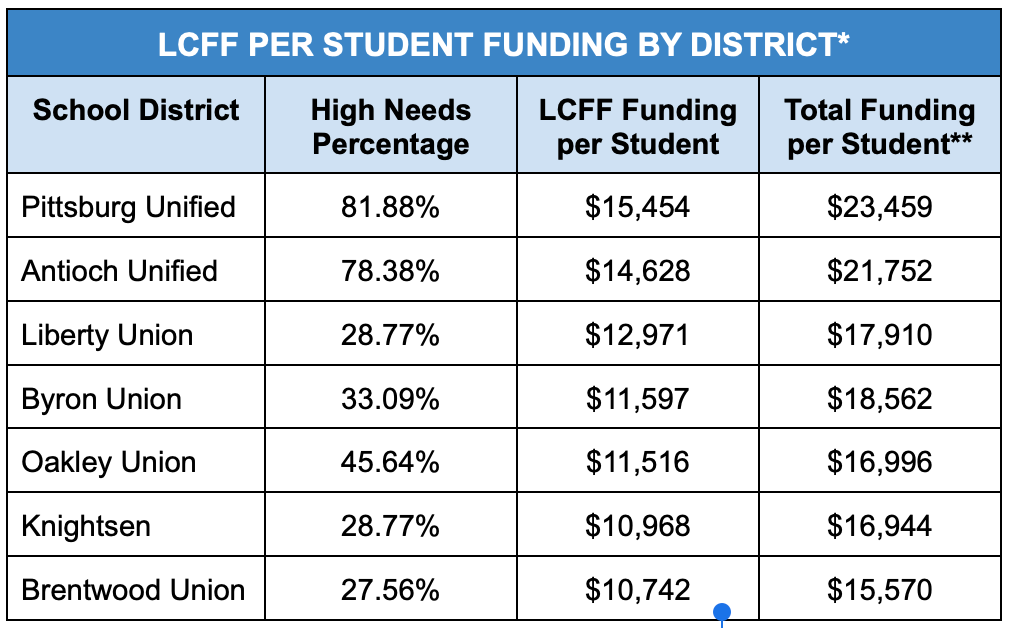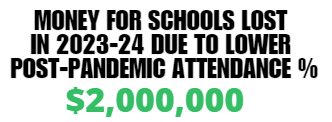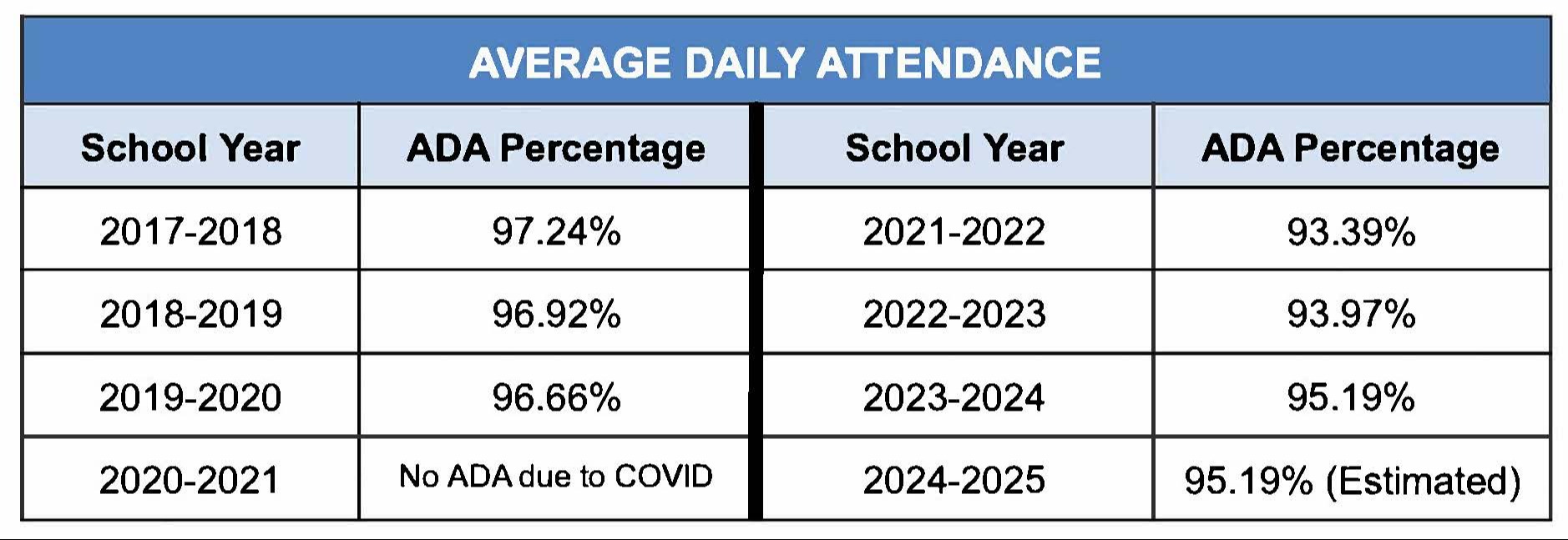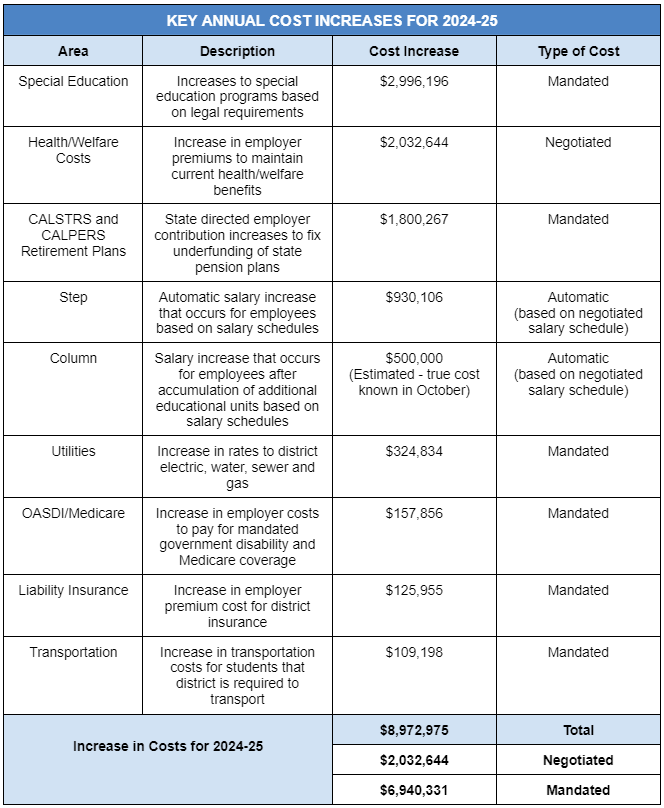Brentwood Union School District Budget Newsletter
STATE FUNDING CHANGE IS PROBLEMATIC AT BUSD
The Local Control Funding Formula (LCFF) changed how districts were funded starting ten years ago. Now, all districts receive a base funding grant for each student who comes to school. Districts receive 20% additional funding per student for each student with high needs; defined as learning English, in poverty, homeless or in foster care. Districts are provided additional money if more than 55% of children in the district qualify as having high needs. As a result of this formula, BUSD receives less money per student than 90% of the districts in the state. If BUSD received the money that Antioch receives per student we would have over $31 million more to serve our local students. As costs continue outpace revenue, cuts will eventually be required at BUSD.

*Most current data is 2022-23 at ed-data.org
**Total funding includes unrestricted and restricted including federal, other state and other local funding
ATTENDANCE MATTERS FOR LEARNING AND FUNDING
Until 1999, schools’ count of students was based on attendance, but students with excused absences, mostly due to illness, were added to the count. After Senate Bill 727 was enacted in 1998-99, school districts no longer received funding for students who were absent from school for any reason.
In the years prior to the pandemic, BUSD average daily attendance (ADA) was around 97%, meaning that on any given day 3% of students were not in attendance. Since returning from the pandemic, attendance has been significantly lower. In 2023-24, BUSD ADA was at 95.03%, more than 2% lower. In addition to the negative impact on learning, lower attendance rates means the state subtracts from our funding. Each day a student is absent for any reason, the district is fined approximately $75. California is one of only a handful of states that funds schools this way. A 1% attendance decline results in approximately $1 million less in funding. BUSD lost over $2 million in funding last year due to the post COVID attendance changes. BUSD is actively working to promote students attending school every day they are not sick. There is clear research about the connection between school attendance and student success.



REQUIRED EXPENDITURES CONSUME LARGE PORTION OF NEW MONEY THAT IS PROVIDED TO DISTRICT
The statutory Cost of Living Adjustment (COLA) provided to districts each year is calculated at the state level. It is not specifically designed to provide schools what they need to keep up with inflation. BUSD’s 2024-25 budget was built on a projected COLA of 3.94%. Due to a significant state budget shortfall and changing economics, that COLA was reduced to 1.07%. The change in COLA caused an immediate reduction of $3,000,000 to the district in ongoing revenue.
Each year, mandated and automatic increases have to be accounted for in the budget. These are costs that the district incurs without choice. These include state retirement plan increases, special education cost increases, disability and Medicare increases, Insurance premium increases, increases in utility prices, transportation cost increases as well as step and column increases to employee salaries based on negotiated salary schedules. In addition, districts negotiate with multiple employee groups each year for salary, benefits and other contractual items that often have additional costs.
Mandated cost increases often outpace revenue increases to the district causing deficit spending and will eventually lead to the need for budget reductions.

INCREASE IN TARGETED FUNDS ALLOWS BUSD TO KEEP COUNSELING AND INTERVIENTION PROGRAMS
At the December 18, 2024 Board Meeting, the First Interim budget was approved as part of the annual budget cycle. The Local Control Funding Formula (LCFF) revenue projections increased due to an increase in enrollment projections and increase in students qualified for additional supplemental funding. This additional funding is called the Unduplicated Pupil Percentage (UPP) which is based on the number of students in the UPP categories of foster youth, homeless, English learners and low income. In 2023-24, the Board directed the Superintendent to actively evaluate other methods of outreach to assist parents in qualifying their students for increased services and supports. With the implementation of a new student information software that year, it was determined that an income survey component could be added to the Annual Parent Data Confirmation process. This was added with the 2024-25 Parent Confirmation process. Many parents completed this portion which created an increase to the student count qualified for UPP. At the same time, Food Services developed new outreach materials to parents about the benefits of completing the Education Income Form (formerly free and reduced application). Working together, principals communicated information to their parent community. Previously, the UPP count for the district had began to decline when Universal (free) Meals was implemented by the State for the 2022-23 school year. As a result, First Interim budget reported 4,382 students qualified for the additional funding, an increase of 1,732 from Adopted Budget in June. This increase resulted in an additional estimated LCFF supplemental revenue of $1,244,232 for 2024-25 and an estimated increase of $2,458,411 for 2025-26. This increase in targeted funds will allow the continued funding for six counselor positions and 10 intervention teachers in the 2025-26. The one-time monies funding the positions was ending on June 30, 2025.
